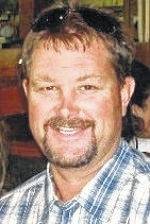According to a 2014 US Bureau of Labor and Statistics poll, the average American spends almost three hours per weekend caring for their lawn. Some take pride in their lawns and enjoy the work, but for many lawn work is considered to be a despised chore. Twenty percent of those surveyed said that mowing the lawn was their least liked chore to tackle on the weekends.
One of the best ways to stream line lawn care work is often one of the most overlooked cultural practices. Cultural practices are methods used to enhance lawn health to prevent weed, pest, or disease problems without the use of chemicals. Research has proven that a vigorous, and healthy lawn tends to be more weed, disease, and pest free, all of which will equate to less time spent on lawn care.
Lawns should be soil sampled every two to three years to ensure pH balance and fertility needs are being met. Lime and fertilizer should be applied at recommended rates and times. Centipede should be fertilized in June, Bermudagrass should have split applications in May, June, July and August, and Zoysiagrass should have split applications made in April, June and August. Do not over fertilize, as this could lead to grass injury and weed encroachment. Lime should be applied in the fall because the lime treats the soil, not the grass.
Correct mowing heights should be implemented to assist with weed and disease control. Centipede should be mowed at 1”, Bermudagrass and Zoysiagrass at .75 -1”. Keep it cut close, but don’t scalp the soil. If you are scalping the soil, raise your mower deck to a height that alleviates this problem.
Irrigation should be done in the early morning hours to supplement a lack of rainfall. 0.5” every third day will help the lawn establish a deep root system that will withstand the summer heat and drought periods. Early morning irrigation will help decrease leaf wetness periods, which will aid in disease control.
By implementing these cultural practices, you should have a healthier, more vigorous lawn, and spend less of your weekend time tending to lawn chores.

